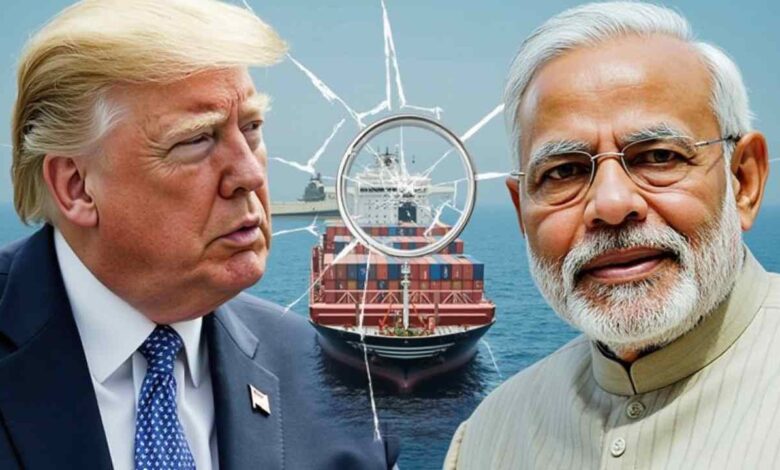Trade War Alert: US Tariffs Threaten Global Economy; Are We on the Brink of a Recession?

Trade War Alert: As a result of America’s recent tariff policies, the global economy is facing a new crisis. The International Monetary Fund (IMF) and the World Trade Organization (WTO) have expressed deep concern over this policy, which has established the highest tariff rates since 1910. This move threatens to reverse decades of efforts in global trade liberalization and could trigger a potential trade war with far-reaching consequences.
In this blog post, we will discuss in detail the various aspects of this new tariff policy, its potential economic impact, and its geopolitical consequences.
Historical Context and Current Situation
For the past several decades, organizations like the WTO and the IMF have worked tirelessly to reduce tariffs worldwide, resulting in a highly interconnected global economy. However, the current U.S. administration has reversed this trend.
The average rate of the newly imposed tariffs has exceeded 20%, the highest in more than a century. These tariffs are not just against specific countries (like China) but have been imposed on various goods worldwide, including steel, aluminum, and electronics. However, to avoid a direct impact on consumer prices, some sectors like pharmaceuticals and smartphones have been kept out of its purview.
Get Instant News Updates!
Join on TelegramThe Economic Impact of Tariff Policies
The effects of this U.S. tariff policy are already being felt, and economists are concerned about its long-term consequences. Here are some of the main effects:
- Increase in Product Prices: A tariff is essentially a tax on imports, which leads to an increase in the price of imported goods. This increased cost is ultimately borne by the consumers.
- Risk of Economic Recession: When product prices rise, people’s purchasing power decreases, leading to a reduction in demand. This harms the manufacturing industry and increases the risk of an economic recession by lowering the country’s Gross Domestic Product (GDP).
- Negative Impact on Industrial Sectors: U.S. industries that are dependent on exports will suffer losses due to retaliatory tariffs from other countries. Similarly, import-dependent industries like electronics, apparel, and automobiles will be affected by the rising cost of raw materials.
- The Misconception of Profit: A common misconception is that profits can be made from other countries through tariffs. In reality, the burden of these tariffs is ultimately borne by the domestic customers and businesses.
Global Reaction and Geopolitical Consequences
There is a strong global reaction against this unilateral tariff policy of the United States. Countries like India and China have already threatened to impose retaliatory tariffs, which could start a full-blown trade war. This could lead countries to try to bypass the U.S. by entering into new trade agreements, which would fragment the global trading system.
The geopolitical consequences could also be severe, as it could lead to a deterioration in relations between the U.S. and its allies and the formation of unexpected new alliances.
Warnings from the IMF and WTO
Both the IMF and the WTO have warned about the gravity of this situation.
They fear that decades of achievements in trade liberalization will be undone. According to these organizations, this tariff policy could lead to a global recession, create market instability, and foster hostile trade blocs among different countries. The situation is being compared to the Great Depression of the 1930s, when the Smoot-Hawley Tariff Act plunged the world economy into a deeper crisis.
Experts believe that in today’s interconnected world, the impact could be even more severe.

